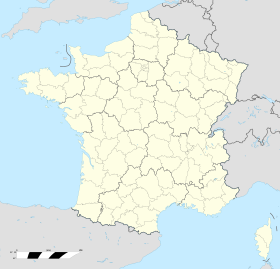Our website is made possible by displaying online advertisements to our visitors.
Please consider supporting us by disabling your ad blocker.
Battle of Caen (1346)
| Battle of Caen | |||||||
|---|---|---|---|---|---|---|---|
| Part of the Crécy campaign during the Hundred Years' War | |||||||
 The storming of Caen, depicted in a manuscript of Froissart's Chronicles | |||||||
| |||||||
| Belligerents | |||||||
| Kingdom of England | Kingdom of France | ||||||
| Commanders and leaders | |||||||
| King Edward III | Raoul, Count of Eu (POW) | ||||||
| Strength | |||||||
| 12,000 (not all engaged) | 1,500 soldiers | ||||||
| Casualties and losses | |||||||
| Unknown, but light | c. 5,000 soldiers and civilians | ||||||
Location of the battle on a map of modern France | |||||||
The Battle of Caen was an assault conducted on 26 July 1346 by forces from the Kingdom of England, led by King Edward III, on the French-held town of Caen and Normandy as a part of the Hundred Years' War.
The assault was part of the Chevauchée of Edward III, which had started a month earlier when the English landed in Normandy. The French failed to intercept the English transports at sea and were taken by surprise, with their main army of more than 15,000 men in Gascony. The English were virtually unopposed and devastated much of Normandy before assaulting Caen. Part of the English army, which consisted of 12,000–15,000, commanded by the Earls of Warwick and Northampton, prematurely attacked Caen. It was garrisoned by 1,000–1,500 soldiers, who were supplemented by an unknown, large number of armed townsmen, and commanded by Raoul, the Count of Eu, the Grand Constable of France. The town was captured in the first assault. More than 5,000 of the ordinary soldiers and townspeople were killed, and a few nobles were taken prisoner. The town was sacked for five days.
Five days after storming the city the English marched to the River Seine. By 12 August they were 20 miles (32 kilometres) from Paris. After turning north they heavily defeated the French at the Battle of Crécy on 26 August. Subsequently, the English commenced the successful siege of Calais, which had a significant effect on the remainder of the war.
Previous Page Next Page



